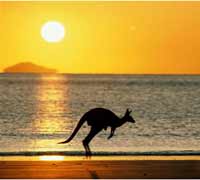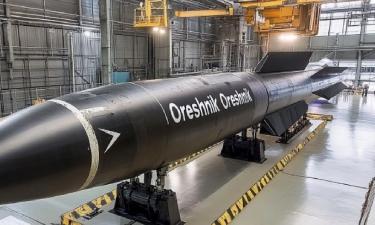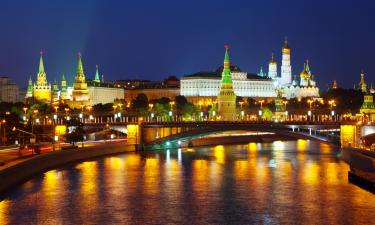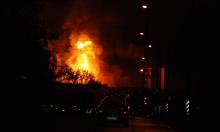Australia’s future in the region and the world
The post-Cold War period has seen important changes in the global organisation of human affairs, not least in Australia’s own Asia-Pacific region. However, d espite a profusion of economic transactions and significant cultural exchanges, the Asia-Pacific faces complex and difficult problems: civil conflicts, geopolitical tensions, economic uncertainties, proliferation of nuclear weapons, and flashpoints that may lead to war.

There is no doubt that in an increasingly contracting world Australia’s future lies within a secure, prosperous, peaceful, stable and environmentally sustainable region. However, Australia’s historical and geographical exceptionalism has often coloured its political outlook on the world: a certain insularity characteristic of island nations, a profound sense of dependence on American power, a deeply entrenched incapacity to acknowledge the darker side of its recent history, a habitual Anglo-centric dominated perspective, all of which have severely impeded a coherent sense of national identity and prompted a marked ambivalence towards Asia. It is only within this context that we can make sense of Australia’s troubled relationship with Asia, and begin to identify the anxieties and insecurities that continue to shape Australia’s image of itself and its place in the world.
After a decade where Australia’s conception of the world was formulated through western, and in particular American, notions of cultural and political superiority, a new government that re-embraces multilateralism and reengages with the region, offers a unique opportunity to set a new and comprehensive agenda for change. In this context, the key question for Australia over the next decade is whether, as a significant regional power, it can contribute, individually and/or collectively, to a more effective system of regional and global security and cooperation? By linking with other allied states (South Korea, Canada, New Zealand, Japan) Australia could, in concert with ASEAN, play a creative role in advancing peacekeeping and peacebuilding mechanisms and processes in the region. Working together at the United Nations and at a regional level, Australia could help avert the looming arms race in East Asia. For this to occur Australia needs to rediscover and reinvent its middle power identity so as to enable it to address more effectively issues of poverty, governance failure and aid delivery – not least in the South Pacific where weak states are increasingly becoming failed states.
However, to build a new regionalism in Asia Pacific requires the reinvigoration and retooling of the existing architecture. Such efforts will need to take account of a rapidly changing global landscape, notably a shift to an increasingly multipolar world. The existing regional architecture needs to be given a more solid normative foundation, a stronger institutional base, and a more coherent set of functions by a cknowledging the notion of comprehensive security; incorporating the principles of human security and democratic peace.
Although a new regional architecture cannot countenance conditions of hegemonic control from either the United States or China, the search for alternative pathways to regional stability and prosperity must involve a range of actors across the political and societal spectrum. We are used to thinking of states as having primary responsibility for world order and international relations. However, if we look at world politics in the post Cold War period we see a different logic at work. Whilst governments often steer a state-centric security agenda, regional and global security depends on increasing economic interdependence, thus underscoring the important role the market can play in security-building. However in addition to the state and the market, c ivil society – organisations that do not come under the jurisdiction of the state, and are not working for profit in the marketplace – at the national, regional and international levels are forging new relationships, linking states and nations in re-imagining and reshaping the future. What is distinctive about these agencies is that they influence and are influenced by the state. They occupy a public space which functions side by side with, yet independently of, the state and the market. It is in this context that Australia’s myriad ethnic communities and its own diaspora can be utilised by providing knowledge and access in their original homelands that furthers not only Australia’s economic and security interests, but also contributes to regional and international peacebuilding.
Nevertheless, the many challenges facing the state, markets and civil society in Australia, require more imaginative policy options open to them in relation to three key signposts: relations with the United States, reform of the UN system, and cooperative regionalism. In response to the post-Cold War realities of a multipolar world, it is timely for Australia to undertake a careful re-examination of the alliance with the United States. This would enable Australia to develop a more independent security policy, to better reflect its goals and aspirations, while at the same time contributing to global and regional security.
To summarise, in the post-September 11 world we are slowly but steadily moving towards multipolarity as the hegemon’s authority declines. TheUN is at a pivotal point in its existence and middle powers like Australia will no doubt help to shape its future. China’s star is rising and this region has to contend with all the ramifications of this complex reality. Human security is a concept whose time is approaching, certainly one that warrants close and sustained attention. It of fers the international community a broader philosophical and political purpose and gives added ballast to the emerging regional and global multilateralism that is a feature of the post-Cold War period. It poses perhaps the most intriguing and critical question of the moment: can civil society (including Australia’s multiethnic/multicultural communities), operating across cultural and civilisational boundaries, play a more influential role in defining the goals and processes of regional and international cooperation?
Dr Michális S. Michael, Research Fellow
Centre for Dialogue, La Trobe University, Melbourne, Australia
m.michael@latrobe.edu.au
Subscribe to Pravda.Ru Telegram channel, Facebook, RSS!





